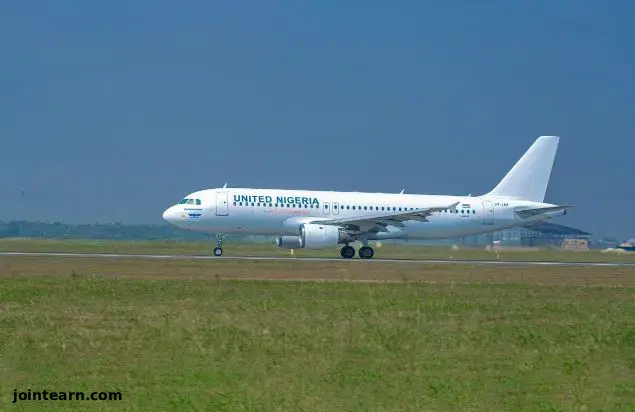
On Monday, United Nigeria Airlines marked a major milestone with the launch of its maiden flight to Accra, Ghana. The event was celebrated with vibrant cultural performances at both Nnamdi Azikiwe International Airport in Abuja and Kotoka International Airport in Accra. The aircraft was named in honour of the late Ghanaian President, Jerry Rawlings, highlighting his enduring legacy in African history.
After the ceremony, United Nigeria Airlines founder, Professor Obiora Okonkwo, spoke to journalists about the company’s strategy for sustaining the route and the broader challenges facing Nigerian aviation.
Entering the Accra Route
Prof. Okonkwo explained that their first strategy is promotion, raising awareness about United Nigeria’s entry into the market and the quality of its service. “Our CRJ-900 aircraft for this route is designed for comfort, with a 90-passenger capacity, and our ERJ-145 complements it. We aim to deliver a service that exceeds passenger expectations, with on-time departures averaging almost 98%,” he said.
He highlighted that traffic between Nigeria and Accra accounts for 50% of West African regional flights, making the route viable if airlines are reasonably priced and efficient.
Challenges of Taxes and Levies
The founder criticized Nigeria’s high aviation taxes and charges. “Passengers flying from Nigeria to Ghana pay $100 one way and $60 on return. Combine that with ticket costs, and the operator often makes zero profit. These levies kill local competition and drive capital out of the country,” he said.
Prof. Okonkwo urged the government to treat aviation as essential, not just a revenue source, and to provide access to low-interest loans. He explained, “Other countries offer two to three percent loans. In Nigeria, we pay over 30% after currency conversion. This makes our tickets artificially expensive and stifles growth.”
Duty-Free Aircraft and Persistent Charges
While the government has granted duty-free importation of aircraft and spare parts, Okonkwo noted that taxes like the ECOWAS one percent levy and excessive passenger charges remain burdensome. “Even if the charges cannot be fully removed, they should at least be aligned with neighbouring countries, such as Ghana, which charges $60 per passenger,” he said.
Preparations for the Yuletide Rush
United Nigeria Airlines is expanding its fleet to nine aircraft by the end of the month, increasing frequencies on key domestic routes like Lagos and ensuring passengers can travel conveniently. He added that most delays during the festive season are due to weather, not operational issues, emphasizing the need for better airport technology like Instrument Landing Systems.
New Security Levies
On the upcoming $11.5 security levy on international passengers, Okonkwo said, “Aviation has become like an elephant feeding many agencies, while operators bear all costs. Charges should reflect actual expenses, not revenue generation for unrelated purposes.”
Collaboration with Other Airlines
He confirmed that United Nigeria Airlines plans to partner with domestic operators like Air Peace, Aero, and Arik under a “spring alliance” to strengthen regional operations.
Conclusion
Prof. Okonkwo’s remarks underline the financial and regulatory pressures that Nigerian airlines face and highlight the need for reforms to ensure local carriers remain competitive in regional and international markets.


Leave a Reply